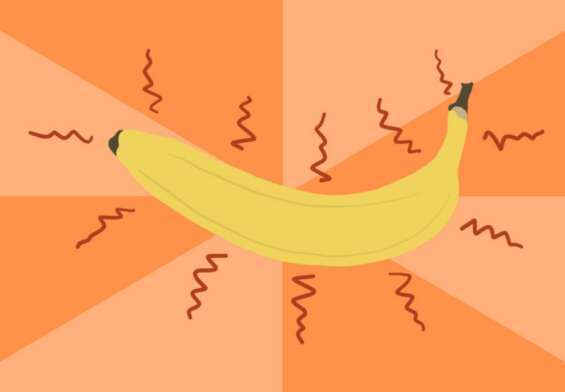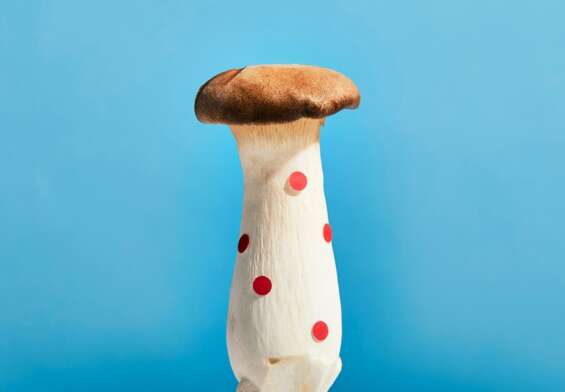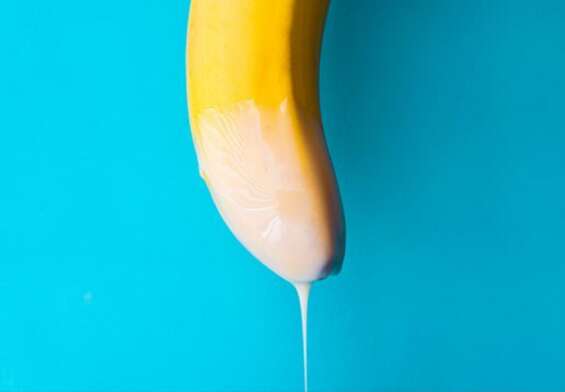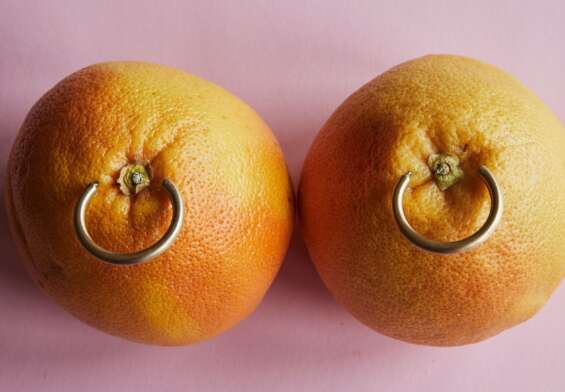
When Does Your Penis Stop Growing?
The growth of the penis is a topic that concerns many men, especially during their teenage years. Most men wonder when their penis will stop growing and what the average size is. It’s natural to have questions about this topic, and it’s important to have accurate information. In this article, we’ll explore when the penis stops growing and what factors can affect its size. We’ll also discuss the importance of accepting your body and debunk common myths about penis size. So, if you’re curious about the growth of your penis, keep reading to learn more.
When Does Penis Growth Begin?
Penis growth typically begins during puberty, which usually occurs between the ages of 9 and 14 for boys. The onset of puberty is triggered by hormonal changes, particularly the production of testosterone, which causes physical changes in the body.
Hormonal Changes During Puberty
During puberty, the body begins to produce higher levels of testosterone, which stimulates the growth and development of the penis, testicles, and scrotum. This increase in testosterone also causes the growth of pubic hair and facial hair, as well as changes in the voice.
Testosterone levels continue to rise throughout adolescence, which means that penis growth continues until a boy reaches his late teens or early twenties. However, the rate of growth slows down significantly after the age of 16.
Importance of Genetics in Determining Penis Size
Genetics also play a role in determining the size of a boy’s penis. In most cases, the size of a boy’s penis is similar to that of his father or other male family members. However, this is not always the case, as there can be significant variations in penis size even among family members.
It’s important to note that penis size does not determine sexual function or satisfaction. Many factors contribute to sexual pleasure, and penis size is just one of them. It’s also important to remember that every person’s body is unique, and there is no “right” or “normal” size for a penis.
Penis growth begins during puberty, stimulated by the production of testosterone, and continues until a boy reaches his late teens or early twenties. Genetics also play a role in determining penis size, but penis size does not determine sexual function or satisfaction.
At What Age Does Penis Growth Typically Stop?
Understanding the factors that determine when penis growth stops
Penis growth is a normal and natural part of development during puberty. However, the timing of when penis growth stops can vary from person to person. Genetics, hormones, and environmental factors all play a role in determining when a person’s penis growth will stop.
Age range when penis growth typically stops
On average, penis growth typically stops around the ages of 17-21 years old. However, this can vary widely from person to person. Some people may experience growth spurts later in life, while others may stop growing earlier than the average age range.
What to expect if penis growth stops early
If a person’s penis growth stops early, they may not reach their desired size. However, it is important to remember that penis size is not the only factor that determines sexual satisfaction. Communication, intimacy, and sexual health practices are all important components of a satisfying sexual experience.
While there is an average age range for when penis growth typically stops, there is a lot of variation from person to person. It is important to focus on overall sexual health and satisfaction, rather than just penis size.
What Happens to Your Penis as You Age?
As men age, changes in the body can have an impact on penis size and function. Here’s what you need to know:
Overview of the Aging Process and Its Effects on Penis Size
As men age, the body goes through a natural process of aging that can cause changes in the penis. One of the most noticeable changes is a decrease in penis size. This is due to the loss of elasticity in the tissues and a decrease in blood flow to the area.
Importance of Maintaining Good Health for Penis Function
Maintaining good health is crucial for proper penis function. Erectile dysfunction, a common condition among older men, can be caused by a variety of health issues such as heart disease, diabetes, and obesity. By taking care of your overall health, you can prevent or manage these conditions and maintain proper penis function.
The Relationship Between Penis Size and Sexual Function
Contrary to popular belief, penis size doesn’t necessarily determine sexual function. While larger size may provide some advantages in terms of sexual pleasure, it’s not the only factor. Sexual function is also influenced by factors such as age, overall health, and emotional well-being.
Can You Increase Penis Size After Growth Stops?
Many men wonder if it is possible to increase their penis size after their growth stops. While there are various penis enlargement methods available, it is important to understand the science behind them and the potential risks and benefits involved.
Overview of Penis Enlargement Techniques
Penis enlargement techniques range from surgery to supplements, stretching devices, and exercises. Some methods claim to increase penis length or girth while others claim to enhance sexual performance.
The Science behind Penis Enlargement Products and Exercises
Most penis enlargement methods work by increasing blood flow to the penis, which can result in temporary swelling and a slight increase in size. However, there is limited scientific evidence to support the effectiveness of these methods in increasing penis size permanently.
The Risks and Potential Benefits of Penis Enlargement Methods
Penis enlargement methods can come with potential risks, including injury, scarring, and loss of sensation. Additionally, there is a lack of regulation and oversight in the penis enlargement industry, which means that some products may be ineffective or even dangerous.
It is important to note that a person’s self-esteem and confidence are not solely determined by their penis size. Men should prioritize maintaining good physical and mental health, which can positively impact sexual function and overall well-being.
Factors That Affect Penis Growth
Hormonal Changes During Puberty
Hormones play a crucial role in penis growth during puberty. Testosterone, the male sex hormone, is responsible for the development of male characteristics, including the growth and development of the penis. This hormone is produced by the testicles and helps to increase the size of the penis, scrotum, and testicles.
Testosterone levels can vary widely during puberty, which can affect penis growth. Higher levels of testosterone can lead to a larger penis, while lower levels can result in a smaller penis. This is why some boys experience a sudden growth spurt during puberty, while others have a more gradual growth.
Genetics and Penis Size
Genetics also play a significant role in determining penis size. Studies have shown that the size of the penis is largely determined by the genes a person inherits from their parents. However, there is no single gene responsible for penis size, and it is a complex trait that is influenced by multiple genes.
While genetics cannot be changed, understanding your genetic potential can help manage expectations for penis size. Factors such as the size of the father’s penis and the timing of puberty can provide insight into what a person can expect.
Lifestyle Factors and Penis Growth
Lifestyle factors such as diet, exercise, and smoking can also affect penis growth. Eating a healthy diet and getting regular exercise can help promote healthy blood flow and hormone production, which can aid in penis growth.
On the other hand, smoking can have a negative impact on penis size. It can restrict blood flow to the penis, which can lead to erectile dysfunction and a smaller penis size. Obesity can also have a negative impact on penis size, as excess body fat can affect hormone production and blood flow.
Maintaining a healthy lifestyle can help promote penis growth and overall sexual health. By avoiding smoking, eating a healthy diet, and getting regular exercise, individuals can improve their chances of having a healthy and fully developed penis.
The Relationship Between Penis Size and Sexual Health
Overview of the Relationship Between Penis Size and Sexual Health
When it comes to sexual health, penis size is often a concern for men. Many believe that a larger penis size equates to better sexual performance and satisfaction. However, research shows that this is not always the case. While penis size may have an impact on sexual satisfaction, it is not the only factor to consider.
Understanding Sexual Health Beyond Penis Size
Other factors that contribute to sexual health include communication, intimacy, and emotional connection. Maintaining a healthy lifestyle, managing stress, and addressing any underlying medical conditions can also improve sexual health. Additionally, exploring and experimenting with different sexual techniques and positions can enhance sexual satisfaction regardless of penis size.
While penis size may play a role in sexual satisfaction, it is important to consider other factors that contribute to overall sexual health. By prioritizing communication, intimacy, and emotional connection, as well as maintaining a healthy lifestyle, individuals can improve their sexual health and satisfaction regardless of penis size.
Conclusion
In summary, the age at which penis growth typically stops varies from person to person but generally occurs by the end of puberty, which is around age 18. While it is possible to increase penis size through various methods such as exercises, devices, and surgeries, the science behind these methods is still inconclusive and the potential risks may outweigh the benefits. It is important to maintain good overall health for optimal penis function, and the size of the penis does not necessarily correlate with sexual function or satisfaction. Ultimately, it is important to focus on overall sexual health and communication with sexual partners rather than solely on penis size.











